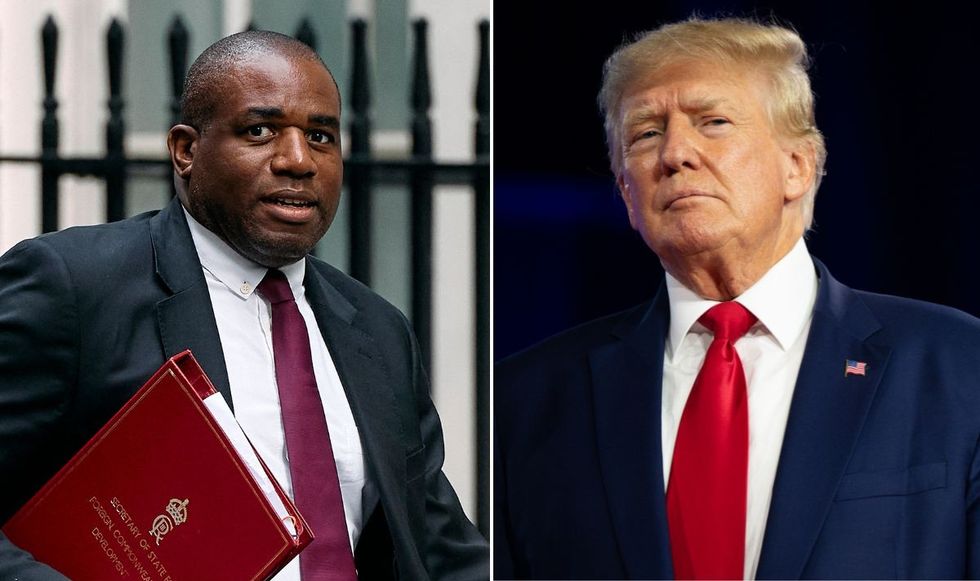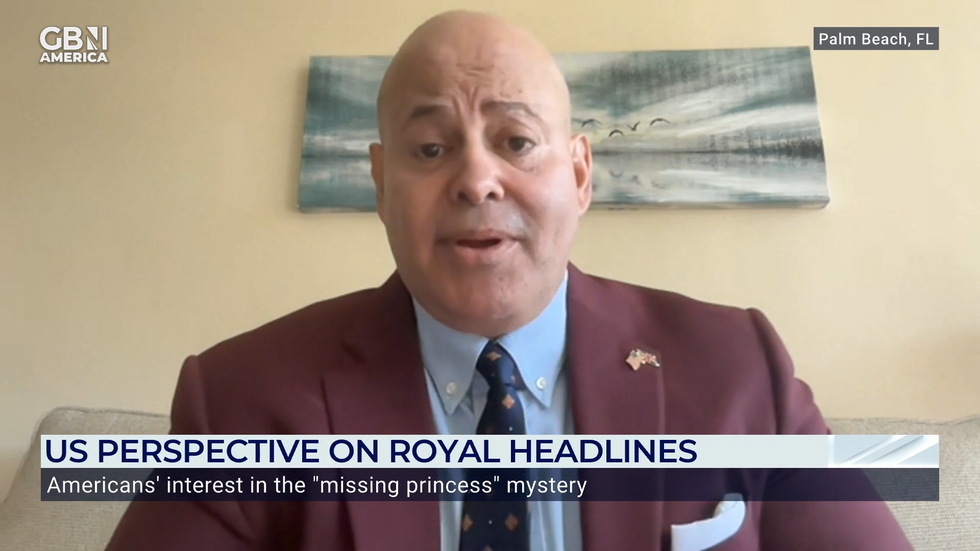Donald Trump and Keir Starmer 'won't get along', warns ex-Security Adviser
GB News
Lee Cohen is a broadcaster and journalist and is a former advisor on UK affairs to the US Congress
Don't Miss
Most Read
Trending on GB News
Leaders like Donald Trump and Nigel Farage are change agents. Disruptors of the most welcome kind.
While the mainstream media and metropolitan elites in America wring their hands over Trump's return to the world stage, reality marches on: the decline of Europe and the hope of a resurgent America.
Evidence of this shift was on full display at the recent reopening of Notre Dame Cathedral. World leaders, eager to secure their place in the new world order, flocked to be seen with President-elect Trump.
French President Macron, facing a crumbling government and deep-seated unrest at home, seemed particularly keen to bask in the glow of Trump's presence. The symbolism was hard to miss: while Europe falters, America, under Trump, is back.
This new reality presents Keir Starmer with a stark choice. He can cling to a fading Europe, embracing policies that align him more with Brussels than with Washington, or he can seize the opportunity presented by a Trump presidency and steer Britain towards a more prosperous future.
The choice, while difficult, is clear: for the good of his country, Starmer should not miss the Trump train.
There's no denying the ideological chasm that separates Starmer and Trump. The Labour leader, with his pro-EU inclinations and preference for big-government solutions, stands in stark contrast to Trump's "America First" patriotism.
Past derogatory remarks about Trump from prominent Labour figures like Ed Miliband and David Lammy further complicate matters. How could Trump ever fully embrace a government whose foreign minister appallingly referred to him as a "woman-hating, neo-Nazi-sympathising sociopath” or that he was "no friend of Britain?”
Or the cringeworthy episde this summer when Labour Party volunteers set sail for America to volunteer for Trump’s opponent, Kamala Harris. The president-elect is unlikely to forget these slights.
 David Lammy has made 'neo-Nazi' jibes about Donald TrumpGetty
David Lammy has made 'neo-Nazi' jibes about Donald TrumpGettyStarmer’s progressive agenda and his government's crackdown on dissenting voices, threatening social media platforms and those who post on them for perceived offenses create further friction.
They have certainly attracted the attention of Trump bestie Elon Musk. Himself a champion of free speech, Trump views these policies with disdain.
This ideological clash, combined with the lingering sting of past insults, makes for a rocky start to the UK-US relationship under a second Trump administration, at least in terms of government-to-government.
Ideological differences aside, there's a compelling economic argument for Starmer to prioritise a strong relationship with the US.
The UK is far more reliant on services than manufactured goods, meaning that Trump's threatened tariffs on Chinese imports would have a minimal impact on the British economy.
Furthermore, the US, with its pro-growth policies and abundance of cheap energy, is poised to become the world's dominant economic force, while the EU stagnates under the weight of bureaucracy and high energy costs. Tying Britain's economic fortunes to a failing Europe would be a mistake of biblical proportions.
Sources close to Trump have suggested that the UK could be exempt from his proposed tariffs, which include a 10-20 per cent levy on all foreign imports and a 60 per cent duty on goods from China.
The exemption is being considered as part of a potential deal that Britain hopes to negotiate in the coming months. This offer, a golden opportunity to secure preferential access to the world's largest market, is one that Starmer should ill afford to refuse.
LATEST MEMBERSHIP OPINION:

Lee Cohen speaking to Nana Akua on GBN America
GB NEWSDespite the challenges posed by ideological differences and strained political relations, Trump harbors a genuine fondness for Britain. He often boasts of his Scottish heritage and admiration for the Royal Family.
His private meeting with Prince William during the Notre Dame ceremony, a meeting not extended to Starmer, who was not present, suggests a level of connection and potential for collaboration that bypasses any potential chill in government channels.
Trump's close relationship with Nigel Farage further strengthens his hand. Farage, with his ascendant Reform UK appeal and media savvy, is a robustly effective conduit to the British public, offsetting any negative perceptions of Trump fostered by a hostile media.
These soft power connections provide Trump with leverage, allowing him to engage even if Starmer proves reluctant.
Starmer faces a defining moment in his new premiership. He can choose the path of least resistance, aligning with a declining Europe and hoping for the best.
Or, he can set aside his ideological differences with Trump, and pursue a strategic partnership that could secure Britain a coveted place in the new global landscape.
History will judge Starmer harshly if he chooses the former. To squander the opportunity presented by what Trump has baptised a “golden era” driven by divergent philosophies, would be a betrayal of the British national interest.
Starmer must rise to the occasion, embrace pragmatism over ideology, and ensure that Britain boards the Trump train before it leaves the station.







